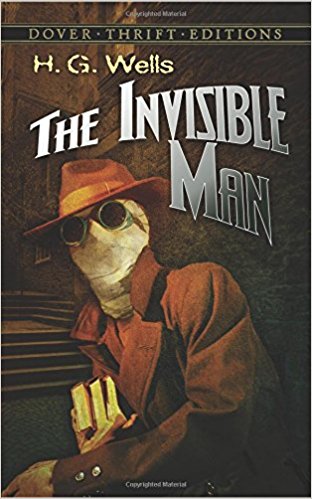
What would you do if you happened to be The Invisible Man? By the time we dealt with that suggesting question, we had already discussed Griffin’s inherent evilness plus a nurtured reaction to a provincial society. For many of us the language used for the writing of this 120-year-old fragmentary novel, including an orthographic representation of dialects and sociolects from the British countryside, was an additional challenge; but at the same time, it gave color and helped depicting a few stereotyped minor characters.
The novel is about physical invisibility and its possibilities, which include establishing “the Reign of the Terror, the Reign of the Invisible Man the First”, my favorite line by a deranged betrayed character anxious for a bloody revenge. He wants to start his epic New World with the killing of his former friend and now antagonist, Doctor Kemp. However, some of us freely interpreted the story as a metaphor for social invisibility, a contradictory phenomenon in the era of social media voyeurism and unicorns.
There might be moments when you dream of being invisible and others when you sigh for attention. That is maybe why Griffin is desperate to find a way to reverse the effects of his experiment, and be able to control the harshness of having to walk naked and barefoot in the cold English winter. And he speculates with the idea of moving to Algiers and its all-the-year-around hot weather, while we are still exploring the always-evil options for a transparent soul in a material world.
Let us not continue with more written comments, visible spoilers of our conversation, for it can be listened to here:
